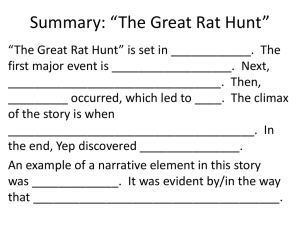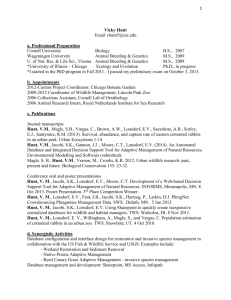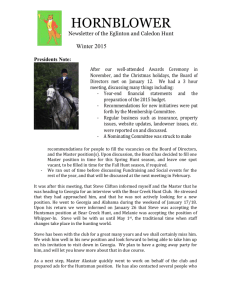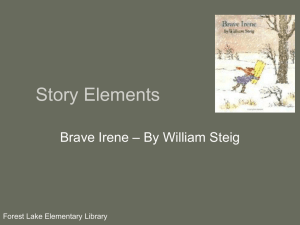Author Biography
advertisement
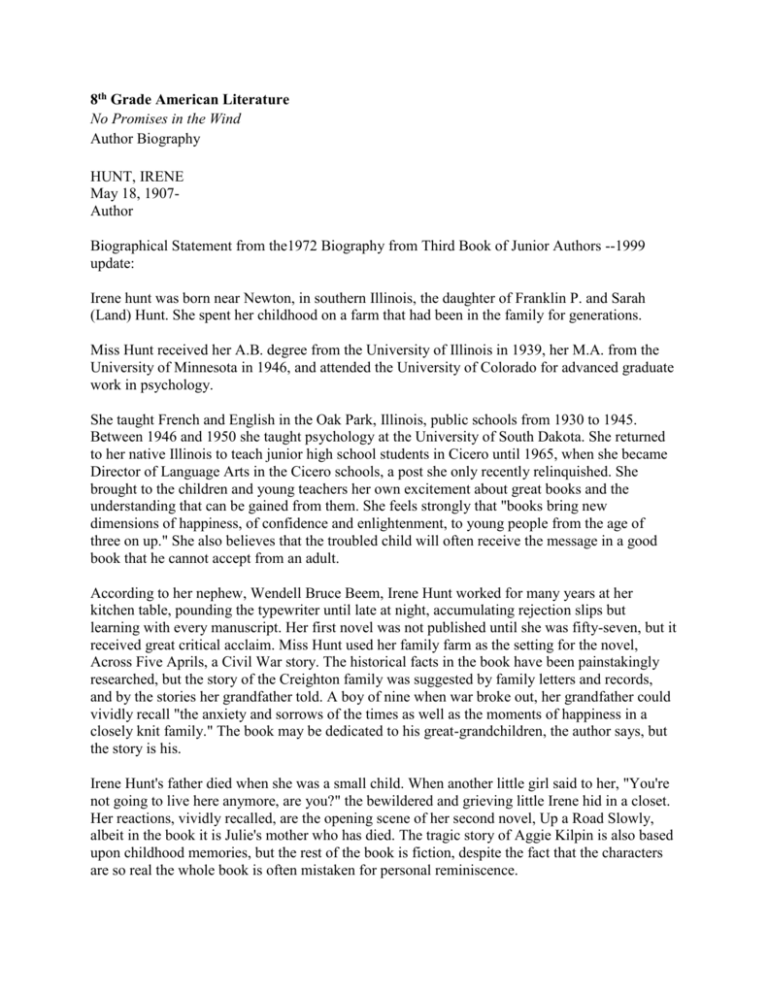
8th Grade American Literature No Promises in the Wind Author Biography HUNT, IRENE May 18, 1907Author Biographical Statement from the1972 Biography from Third Book of Junior Authors --1999 update: Irene hunt was born near Newton, in southern Illinois, the daughter of Franklin P. and Sarah (Land) Hunt. She spent her childhood on a farm that had been in the family for generations. Miss Hunt received her A.B. degree from the University of Illinois in 1939, her M.A. from the University of Minnesota in 1946, and attended the University of Colorado for advanced graduate work in psychology. She taught French and English in the Oak Park, Illinois, public schools from 1930 to 1945. Between 1946 and 1950 she taught psychology at the University of South Dakota. She returned to her native Illinois to teach junior high school students in Cicero until 1965, when she became Director of Language Arts in the Cicero schools, a post she only recently relinquished. She brought to the children and young teachers her own excitement about great books and the understanding that can be gained from them. She feels strongly that "books bring new dimensions of happiness, of confidence and enlightenment, to young people from the age of three on up." She also believes that the troubled child will often receive the message in a good book that he cannot accept from an adult. According to her nephew, Wendell Bruce Beem, Irene Hunt worked for many years at her kitchen table, pounding the typewriter until late at night, accumulating rejection slips but learning with every manuscript. Her first novel was not published until she was fifty-seven, but it received great critical acclaim. Miss Hunt used her family farm as the setting for the novel, Across Five Aprils, a Civil War story. The historical facts in the book have been painstakingly researched, but the story of the Creighton family was suggested by family letters and records, and by the stories her grandfather told. A boy of nine when war broke out, her grandfather could vividly recall "the anxiety and sorrows of the times as well as the moments of happiness in a closely knit family." The book may be dedicated to his great-grandchildren, the author says, but the story is his. Irene Hunt's father died when she was a small child. When another little girl said to her, "You're not going to live here anymore, are you?" the bewildered and grieving little Irene hid in a closet. Her reactions, vividly recalled, are the opening scene of her second novel, Up a Road Slowly, albeit in the book it is Julie's mother who has died. The tragic story of Aggie Kilpin is also based upon childhood memories, but the rest of the book is fiction, despite the fact that the characters are so real the whole book is often mistaken for personal reminiscence. Up a Road Slowly won the Newbery Medal for 1967, and was one of seven juveniles given by the American Booksellers' Association in 1970 (a quadrennial gift of 250 books) to the White House for its home library. Irene Hunt now lives in North Riverside, Illinois, when she is not traveling. She loves "beautiful, well-written books and beautiful very loud music," refinishes old furniture, and has a flair for cooking. She is slim, chic, and attractive, with curly, graying brown hair.
